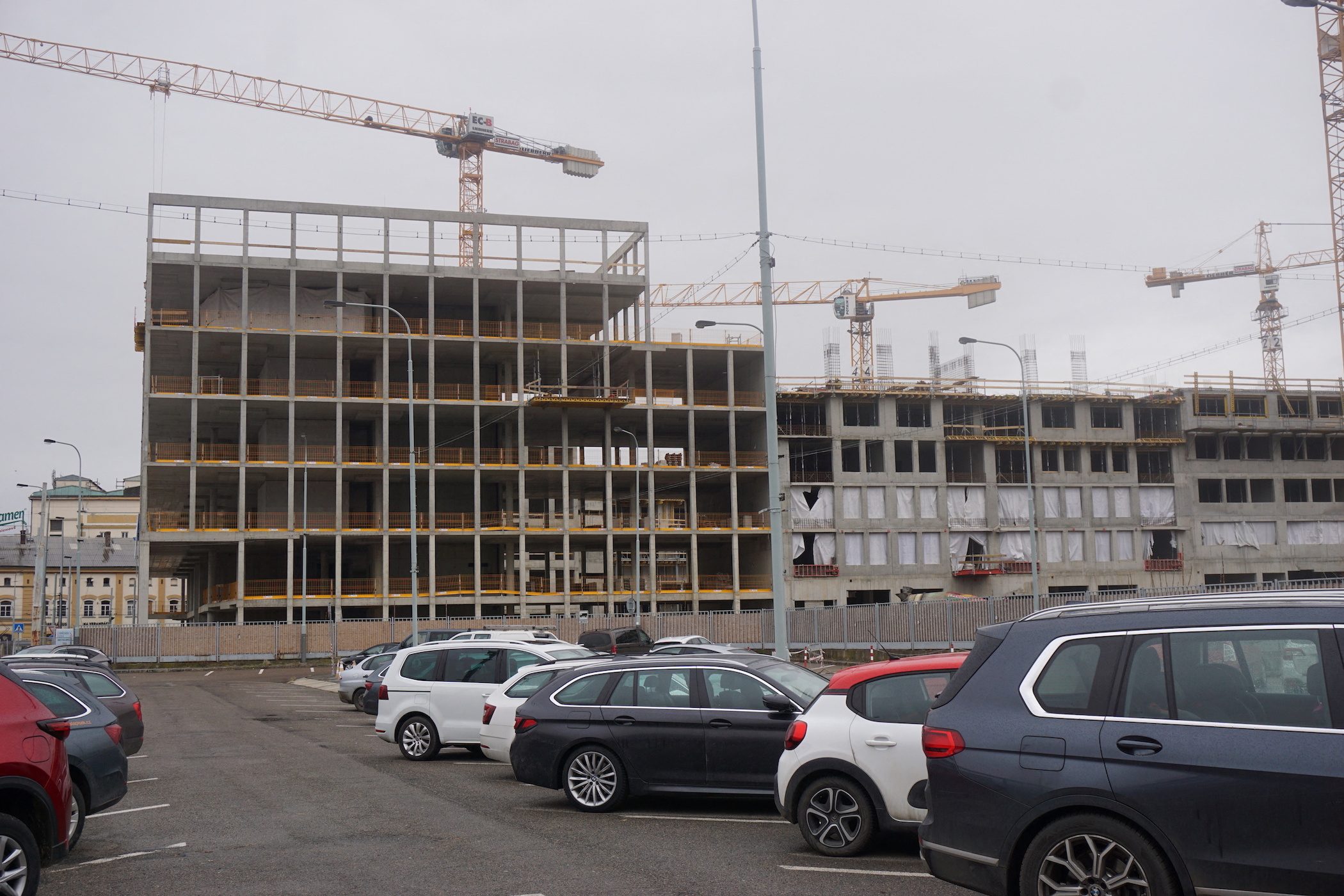SUMMARY
This is AI generated summarization, which may have errors. For context, always refer to the full article.

PRAGUE, Czech Republic – Meera Sankar knew it was time to give up her dream of buying a home in Prague when she looked at a flat barely big enough for one person but carrying a budget-busting price tag.
The 31-year-old’s experience is a common one in Prague and other cities in central Europe where high prices, squeezed by acute supply shortages, have pushed home ownership out of reach for many potential first-time buyers. As the region’s central banks now hike borrowing rates, the problem is getting worse.
“I decided to keep renting when I went to an apartment advertised as 60 [square] meters (646 square feet) but the apartment itself was only 20 meters and the rest was a garden,” Sankar, a special effects producer in the film industry, said about the property priced at 4 million crowns ($189,081).
“There was barely enough space for one person and a few pieces of furniture. I spent two years actively looking for something but it is too expensive and not getting any cheaper.”
Much has been made of eye-wateringly high house prices in western European cities such as London, Paris, or Hamburg. But it is in central and eastern Europe where the disconnect between prices and local salaries – which on average are well below those in the west – is most acute.
The Czech Republic ranks as the least affordable housing market in Europe with an average of 12.2 gross annual salaries needed to buy a 70-square-meter apartment, according to Deloitte’s housing affordability survey released in 2021.
This compares to 6 average salaries to purchase a property in Germany and 5.1 in Norway. Czech housing prices also rose 22% year-on-year in the third quarter of 2021, the fastest rise in the European Union for a second quarter in a row, according to Eurostat data.
“The people now getting into trouble are also the middle-income bracket, and even the slightly higher income,” said Vit Hradil, chief economist at Czech brokerage firm Cyrrus.
“So if you think of essential s[workers] such as teachers, policeman, firefighters, they are probably unable to afford any kind of apartment in Prague nowadays.”
Mortgage costs jump
The spiraling gains are similar across other Czech cities and central European countries, where since 2010 Hungarian home prices have more than doubled.
In Warsaw’s city center the average price per square meter runs at about 4,000 euros ($4,562) compared with 3,770 euros in Brussels where the average monthly net salary is a little more than double the wage in the Polish capital, according to Numbeo, a website comparing costs of living.
An added problem in Prague is the long wait for developers to get construction permits, which has limited supply. In 2021 supply in the Czech capital hit a 10-year low, according to an analysis by developers Trigema, Central Group, and Skanska Reality, with 3,300 new flats available on average in the year, 1,980 less than in 2020.
Prices have also been driven up across the region by fast wage growth and a sustained period of low interest rates, until recent hikes, which made loans more accessible and spurred demand for investment properties.
“If you think of first-time buyers, who had never entered the real estate market before and are only entering now, they pretty much stand no chance to buy unless they are supported by family members with a significant amount of cash,” Hradil said.
Central Europe has been ahead of most of Europe in raising interest rates after the pandemic, pushing mortgage costs to levels not seen since before the 2008-2009 global recession and further raising the bar for those seeking their first step on the housing ladder.
Hungary’s central bank said in January it would continue rate hikes to curb inflation. Poland – emerging Europe’s biggest economy – raised rates again on Tuesday, February 8, by 50 basis points to 2.75%, and hinted at more tightening to come.
The Czech National Bank, which is reintroducing mortgage lending limits such as loans at no more than 80% of a property’s value or ceilings on borrowers’ debt load relative to income, also lifted its main interest rate to a 20-year high of 4.50% last week.
Experts estimate mortgage rates could soon near 5%, up from around 2% seen by the market monitor Fincentrum Hypoindex before the Czech bank began lifting its rate from 0.25% in June last year.
“Around 20% of clients in my pipeline have pulled out of the search at least temporarily due to the increased costs,” said Prague-based mortgaged broker Robin Petrasek, who estimates borrowing costs for each million crowns borrowed with a 30-year term have risen more than 25% from a year ago.
“With the increased rates it’s clear the amount of people able to buy properties will be getting lower.”
Help on the way?
Officials are looking for ways to help first-time home buyers grapple with the soaring prices but limited supply of properties leaves them with few tools at their disposal.
Hungary froze retail mortgage interest rates for a six-month period from January to shield borrowers with floating mortgages and has targeted grants and subsidized bank loans worth up to a combined 25 million forints ($80,707.64) available to families.
In Poland, as part of the government’s Polish Deal economic program, the state will guarantee the deposit on a property for up to 20% of its value, up to a maximum of 100,000 zlotys ($25,206.06) in order to help people who can’t save up for a deposit.
Prague Mayor Zdenek Hrib told Reuters the city has focused on reconstructing municipal flats to increase supply and keeping a number in reserve for essential workers, such as teachers, police officers, and social workers.
“Housing affordability has been one of the main concerns of the current city council in Prague,” Hrib said.
The dizzying price increases spurred Tomas Klima and his fiance into action after they had postponed their search when the pandemic began in hopes prices would fall.
They rushed back into the market when prices kept climbing, only to find flats selling almost immediately or visited others that attracted multiple bids well over the asking price.
“We thought with COVID everybody would lose jobs and prices would go down,” Klima, 33, said. “We looked at the market and saw prices rising all the time. We couldn’t afford to wait.” – Rappler.com
$1 = 21.1550 Czech crowns
$1 = 0.8768 euros
$1 = 309.7600 forints
$1 = 3.9673 zlotys
Add a comment
How does this make you feel?





There are no comments yet. Add your comment to start the conversation.